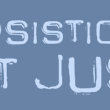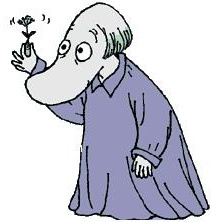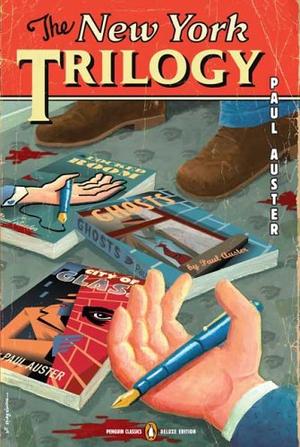Britt Elin
The Goldfinch
av Donna Tartt (forfatter).
Little, Brown and Company 2013 Hardcover
Britt Elins eksemplar av The Goldfinch
Lesetilstand
Har lest denneHylle
RomanerLesedato
2014
Favoritt
Favoritt!
Terningkast
Min omtale
Ingen omtale
Bokdetaljer
Forlag Little, Brown and Company
Utgivelsesår 2013
Format Hardcover
ISBN13 9780316055437
Språk Engelsk
Sider 784
Finn boka på biblioteket
Finner du ikke ditt favorittbibliotek på lista? Send oss e-post til admin@bokelskere.no med navn på biblioteket og fylket det ligger i. Kanskje vi kan legge det til!
Bokelskeres terningkastfordeling
8 24 9 2 0 1Bokomtaler
Wow! What to say... Denne boka er så rik! Det er en oppvekstskildring, en dannelsesroman, spenningsfortelling, om forhold til gode og dårlige foreldre, om vennskap, den store kjærligheten (og den lille), om å komme hjem og kanskje aller mest om kunst. Om hva vakre gjenstander kan gjøre med oss. Du store...
Skriv en omtale Se alle omtaler av verket
Diskusjoner om boka
Ingen diskusjoner ennå.
Start en diskusjon om verket Se alle diskusjoner om verketSitater fra dette verket
Why am I made the way I am? Why do I care about all the wrong things, and nothing at all for the right ones? How can I see so clearly that everything I love or care about is illusion, and yet - for me, anyway - all that`s worth living for lies in that charm?
They want it all as detailed as possible because even the tiniest things mean something. Whenever you see flies or insects in a still life - a wilted petal, a black spot on the apple - the painter is giving you a secret message. He's telling you that living things don't last - it's all temporary. Death in life. That's why they're called natures mortes. Maybe you don't see it at first with all the beauty and bloom, the little speck of rot. But if you look closer - there it is.
We are so accustomed to disguise ourselves to others, that in the end, we become disguised to ourselves.
- François de La Rochefoucauld
... 'the world won't come to me,' he used to say, 'so I must go to it' -
We can't choose what we want and don't want and that's the hard lonely truth. Sometimes we want what we want even if we know it's going to kill us. We can't escape who we are.
People had been raging and weeping and destroying things for centuries and wailing about their puny individual lives, when - what was the point? All this useless sorrow? Consider the lilies of the field. Why did anyone ever worry about anything? Weren't we, as sentient beings, put upon the earth to be happy, in the brief time allotted to us?
For humans - trapped in biology - there was no mercy: we lived a while, we fussed around for a bit and died, we rotted in the ground like garbage. Time destroyed us all soon enough. But to destroy, or lose, a deathless thing - to break bonds stronger than the temporal - was a metaphysical uncoupling all its own, a startling new flavor of despair.
To understand the world at all, sometimes you could only focus on a tiny bit of it, look very hard at what was close to hand and make it stand in for the whole; but ever since the painting had vanished from under me I'd felt drowned and extinguished by vastness - not just the predictable vastness of time, and space, but the impassable distances between people even when they were within arm's reach of each other, and with a swell of vertigo I thought of all the places I'd been and all the places I hadn't, a world lost and vast and unknowable, dingy maze of cities and alleyways, far-drifting ash and hostile immensities, connections missed, things lost and never found, and my painting swept away on that powerful current and drifting out there somewhere: a tiny fragment of spirit, faint spark bobbing on a dark sea.
It`s not about outward appearances but inward significance. A grandeur in the world, but not of the world, a grandeur that the world doesn't understand
It is not flesh and blood, but heart which makes us fathers and sons.
- Schiller
Legg inn et nytt sitat Se alle sitater fra verket
Lister som inneholder dette verket
Pulitzerprisen for skjønnlitteratur er en amerikansk prestisjetung litteraturpris og er en av Pulitzerprisenes kategorier som er blitt delt ut siden 1918 for framstående romaner ...



















































































